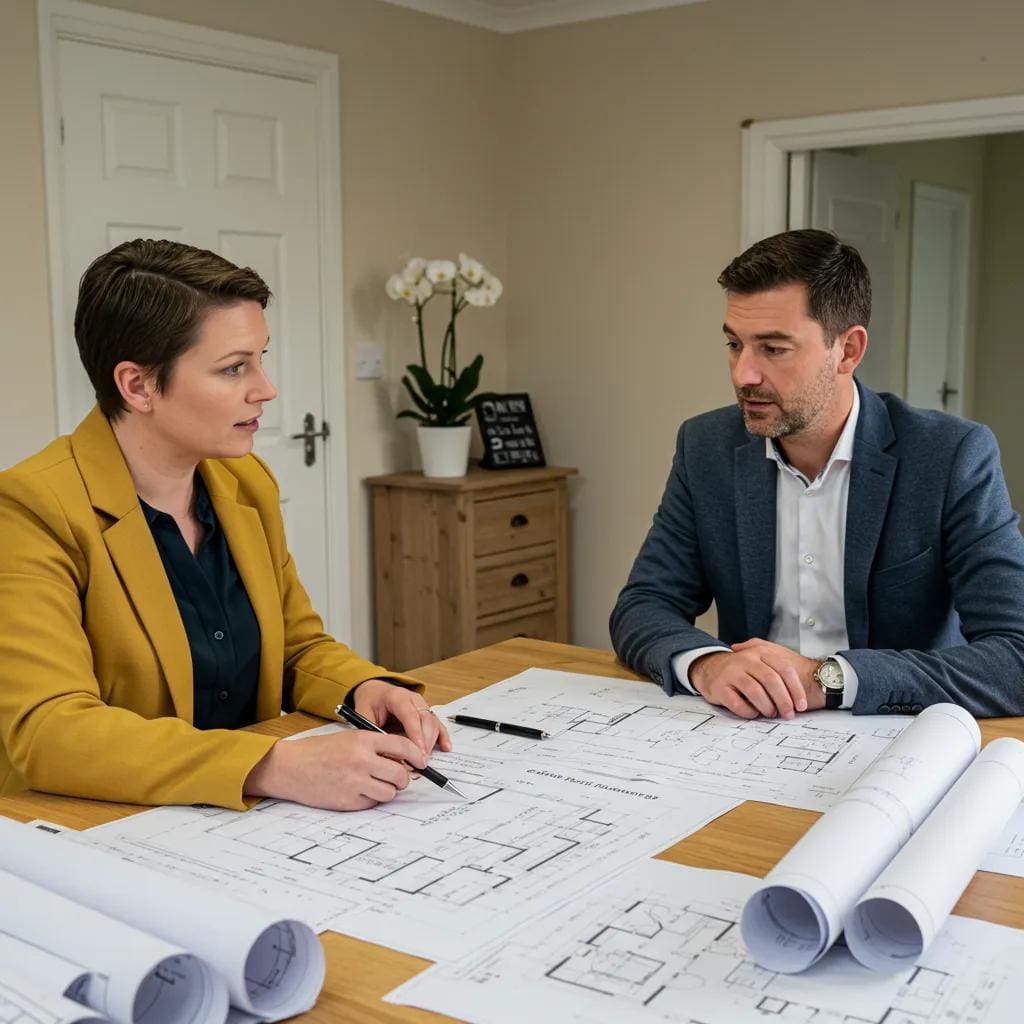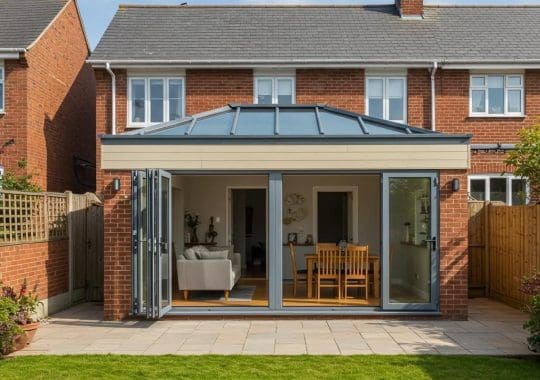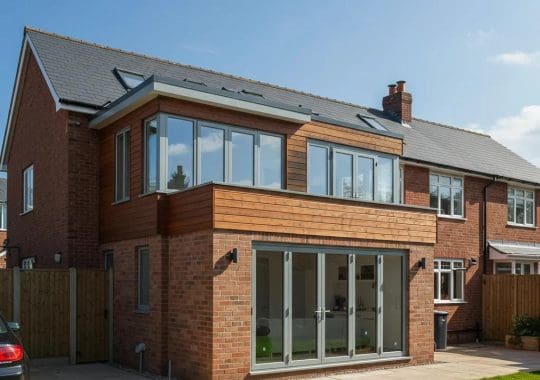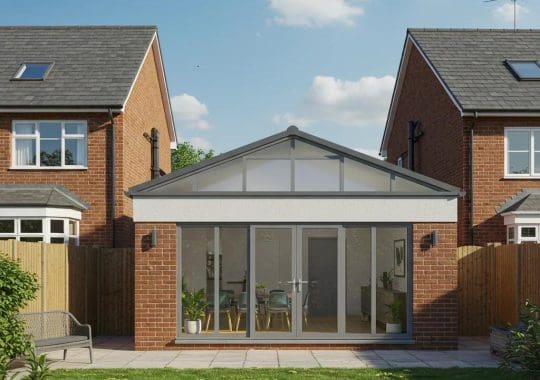Transform Your Cardiff Garage: Your Guide to Planning, Design, and Value
Is your Cardiff garage sitting empty, a wasted space with potential? Many homeowners shy away from conversions due to worries about planning, regulations, and costs. But with a clear understanding of Cardiff Council’s requirements, Welsh building standards, and smart design choices, you can easily turn that garage into a functional home office, a cosy extra bedroom, or a personal gym. Not only will it enhance your lifestyle, but it can also boost your property’s value by up to 20 percent! This guide will walk you through when you need planning permission, what building control standards to meet, typical costs for single and double garage conversions, popular layout ideas, and how to find a trusted local expert. We’ll also share insights from Cardiff-based conversion specialists who offer clear pricing and expert planning advice, along with their best tips for saving money.
Do You Need Planning Permission for a Garage Conversion in Cardiff?

Generally, converting a garage in Cardiff falls under permitted development rights, meaning you can often proceed without a formal planning application, as long as you don’t change the garage’s original footprint or external look. Permitted development usually applies if you keep the original openings, use the space as part of your home, and don’t increase its size. However, if you plan to add extensions, install new windows on street-facing sides, or alter the roofline, you’ll need to apply for planning permission to ensure everything aligns with Cardiff Council’s policies and any local conservation area rules.
To apply for approval, you’ll need to submit detailed drawings, a site plan, and a design and access statement to Cardiff Council’s planning department. If you want official confirmation that your conversion meets permitted development rules without going through the full planning process, you can apply for a Lawful Development Certificate. If your property shares a wall with a neighbour’s garage, a Party Wall Agreement is essential for legal clarity on any works affecting shared structures, helping to prevent disputes during construction.
What Are Permitted Development Rights for Garage Conversions in Cardiff?
Permitted development rights allow you to convert your garage without needing planning permission, provided you stick to these conditions:
- The garage’s total volume must not exceed its original size.
- No external extensions or changes to the roof are allowed.
- Any new materials used must match the existing ones to keep the neighbourhood’s character intact.
These rights make the conversion process much smoother and save you on application fees. Keeping the original garage door or replacing it with similar windows and a new entrance maintains the façade, keeping your project within permitted development and avoiding lengthy council reviews.
When Is Planning Permission Essential for Garage Conversions?
You’ll need to apply for planning permission if your project:
- Extends beyond the garage’s current footprint.
- Includes new dormer windows or skylights on elevations facing a street.
- Is located within a conservation area or on a listed building.
If any of these apply, getting formal approval ensures your conversion meets local design standards, environmental considerations, and any necessary neighbour consultations under the Town and Country Planning Act.
How to Apply for Planning Permission with Cardiff Council?
- Prepare detailed drawings showing the existing and proposed layouts.
- Fill out the council’s application form, providing specific details about your garage conversion.
- Submit a site location plan, a design and access statement, and the required fees.
- Be ready to answer any questions from council officers during the standard consultation period, which is usually eight weeks.
Talking to a planning officer beforehand and using the pre-application advice service can help speed things up and clarify design requirements before you officially submit your application.
What Is a Lawful Development Certificate and When Is It Needed?
A Lawful Development Certificate serves as official proof that your garage conversion complies with permitted development rules, giving you legal certainty without the need for a full planning application. Homeowners often seek this certificate when factors like boundary issues, previous extensions, or local conservation rules make them unsure if they qualify for permitted rights.
How Do Party Wall Agreements Affect Garage Conversions in Cardiff?
A Party Wall Agreement is crucial for any work involving shared walls or foundations with your neighbours. It clearly defines responsibilities, helps prevent boundary disputes, and ensures that any structural changes are carried out safely. By formally notifying your neighbour and getting their consent under the Party Wall etc. Act 1996, you protect both parties during works like underpinning or altering masonry.
What Are the Building Regulations for Garage Conversions in Wales?
Building regulations in Wales are in place to guarantee that your garage conversion is safe, comfortable, and energy-efficient. These rules cover everything from the structural integrity and fire safety to thermal performance, ventilation, drainage, and electrical systems – essentially, every aspect from the ground up. Complying with these regulations not only adds to your home’s comfort but also increases its resale value. Cardiff Council’s building control officers will inspect the work at key stages to ensure everything meets the required standards.
To get started, you’ll need to submit either a building notice or a full plans application to your local authority. Engaging with the building control team early on can help avoid costly revisions and ensures your chosen contractor is fully aware of the requirements for insulation, fire separation, and any necessary structural modifications.
Which Key Building Regulations Apply to Garage Conversions in Cardiff?
- Structure: This covers reinforcing foundations and lintels for any new openings you create.
- Fire Safety: You’ll need to install fire-rated doors between the garage and the main house.
- Thermal Performance: Regulations specify the U-values (a measure of heat loss) for walls, floors, and roofs.
- Ventilation: Adequate airflow is required, either through mechanical systems or passive vents, to prevent condensation.
- Drainage: Proper connections for soil and waste pipes are necessary, along with frost protection for pipework.
- Electrical Safety: All electrical work must be periodically inspected and certified by a qualified electrician.
How to Comply with Fire Safety Regulations in Garage Conversions?
To meet fire safety standards, you’ll need fire-resistant walls, fire-rated doors that close automatically, and clear escape routes. Smoke alarms should be integrated with your home’s system, and if you’re creating new rooms above the garage, there must be at least 30 minutes of fire resistance between the floors.
What Are the Insulation and Ventilation Requirements for Converted Garages?
To achieve modern energy efficiency standards, you’ll need to ensure:
- Wall insulation meets a U-value of 0.30 W/m²·K or better.
- Roof insulation reaches 0.16 W/m²·K, often achieved with high-performance boards or spray foam.
- The existing concrete slab has under-floor insulation and a damp-proof membrane.
- Continuous ventilation, either through trickle vents or a Mechanical Ventilation with Heat Recovery (MVHR) system, to manage humidity and maintain good air quality.
How Does Cardiff Council’s Building Control Oversee Garage Conversions?
Cardiff Council’s building control officers will carry out site inspections at crucial stages, including foundations, damp-proof course installation, first-fix wiring and plumbing, and the final completion. They’ll check structural work, insulation, drainage connections, and electrical certificates. Each inspection must pass before the next stage can begin, leading to an official completion certificate once all work is finished.
What Are the Drainage and Electrical Standards for Garage Conversions?
For drainage, any new or extended soil and waste pipes must connect to the main sewer system with the correct gradient and frost protection. All electrical installations must comply with BS 7671 regulations and be certified by a qualified electrician. This may involve installing new consumer units or Residual Current Device (RCD) protection where necessary.
How Much Does a Garage Conversion Cost in Cardiff?
In Cardiff, you can expect a garage conversion to cost anywhere from £7,000 to £20,000, depending on the size, type of conversion, and the quality of finishes you choose. A single garage typically ranges from £7,000 to £11,000, while a double garage or a detached garage conversion could cost between £15,000 and £20,000. Getting clear quotes from local specialists helps ensure your budget covers all necessary work, including structural elements, insulation, and finishes, without any unexpected charges.
| Garage Size | Average Cost Range | Key Cost Factors |
|---|---|---|
| Single Garage | £7,000 – £11,000 | Structural work, insulation |
| Double Garage | £12,000 – £20,000 | Additional flooring, glazing |
What Is the Cost Difference Between Single and Double Garage Conversions?
Converting a double garage naturally involves higher costs for materials, labour, and utility connections. A larger area requires more insulation, potentially under-floor heating, and extra electrical work. If you’re also extending the roof or walls, the structural costs will increase significantly.
How Do Attached, Detached, and Integral Garage Conversions Affect Costs?
- Attached Conversion: Since it shares existing walls with your house, this usually means less work on foundations and roofing.
- Detached Conversion: This type requires building new walls, a roof, and foundations from scratch, leading to higher structural expenses.
- Integral Conversion: Connecting an integral garage to your main house can be complex, often needing custom joinery and adjustments to the existing roof structure.
What Are the Typical Cost Components: Materials, Labour, and Utilities?
- Materials: This includes items like insulation boards, fire-rated doors, windows, and flooring.
- Labour: Costs for carpenters, plumbers, electricians, and plasterers.
- Utilities: Expenses for under-floor heating, new gas or electrical connections, and drainage work.
How Can Homeowners Budget Effectively for Their Garage Conversion?
You can potentially save up to 15 percent on your conversion costs by getting fixed-price quotes, scheduling the work during quieter periods, and reusing existing fixtures where possible. Engaging with a Cardiff conversion specialist early on will help you get accurate estimates and arrange flexible payment plans.
Does a Garage Conversion Add Value to Your Property in Cardiff?
A garage conversion that meets all regulations and is well-designed can increase your property’s value by 10–20 percent, especially if it’s converted into extra living space or a separate annexe. High-quality finishes and energy-efficient features will make it even more attractive to potential buyers.
What Are Popular Garage Conversion Design Ideas for Cardiff Homes?
Transforming a garage into a home office, an extra bedroom, or a gym is a practical way to meet modern living needs while adding style. With smart layouts, clever use of natural light, and custom storage solutions, even small spaces can become comfortable and functional areas for work, relaxation, or exercise.
- Sleek Home Office: Maximize your workspace with floor-to-ceiling shelving and integrated under-desk storage.
- Comfortable Guest Suite: Create a welcoming space with an en-suite shower room and built-in wardrobes.
- Personal Home Gym: Equip your space with rubber flooring, mirrored walls, and built-in sound systems.
- Fun Children’s Playroom: Opt for durable laminate flooring, wipe-clean walls, and safe, recessed lighting.
- Open-Plan Living Area: Combine lounge, kitchenette, and dining spaces, enhanced by large bi-fold doors.
These ideas show how different finishes and layouts can suit various homeowner needs, helping you decide on the finer details of materials and lighting.
How to Design a Functional Home Office from Your Garage?
To create an effective office space, consider installing large windows on the south-facing side for maximum natural light, hiding cables neatly behind work surfaces, and using acoustic insulation panels to minimise noise distractions.
What Are the Best Layouts for Extra Bedrooms in Garage Conversions?
An L-shaped layout can cleverly separate the sleeping area from the entrance, reducing noise disturbance. Built-in wardrobes along one wall help maintain ample circulation space.
How to Create a Home Gym or Playroom in a Converted Garage?
For a gym, install heavy-duty flooring, mirrored walls, and wall-mounted racks for equipment. For a playroom, opt for padded flooring, mirrored panels, and storage benches to create a safe and engaging environment.
How to Maximise Natural Light in Garage Conversion Designs?
High-level clerestory windows or rooflights can provide consistent daylight throughout the space. Using light colours for walls and open shelving will also help reflect light and make the area feel brighter.
What Are the Latest Trends in Garage Conversion Interior Design?
Current interior design trends include incorporating biophilic elements like living green walls, adding ambient LED strip lighting around the perimeter, and using concealed storage solutions to achieve a clean, minimalist look.
What Are Key Construction and Design Tips for Garage Conversions in Cardiff?
Choosing the right materials and planning the structure carefully are essential for creating a comfortable, long-lasting conversion that meets all regulations, especially in Wales’s climate. Insulation, heating, flooring, and windows all play a vital role in making your converted garage feel like a natural extension of your home.
| Flooring Type | Durability | Style Appeal |
|---|---|---|
| Vinyl Planks | High | Wide variety of finishes |
| Engineered Wood | Medium | Warm, natural look |
| Polished Concrete | Very High | Modern industrial vibe |
| Laminate Flooring | Medium | Affordable option |
What Insulation Types Are Best for Garage Conversions in Wales?
Closed-cell spray foam is excellent for achieving high thermal performance in tight spaces. Rigid PIR boards are also a great option, offering consistent U-values and being easy to install against blockwork.
How to Ensure Proper Heating and Ventilation in Converted Garages?
Under-floor heating installed beneath rigid insulation provides consistent warmth. Supplement this with mechanical extract fans or heat recovery ventilators to keep the air fresh and prevent dampness.
What Flooring Options Suit Garage Conversions?
For gyms and playrooms, moisture-resistant vinyl is a practical choice. Engineered wood offers a warm feel for home offices, while polished concrete provides a durable, industrial aesthetic for open-plan living areas.
How to Choose Windows and Doors for Garage Conversions?
Opt for thermally broken aluminium frames or composite doors with excellent weather resistance. These ensure security, require minimal maintenance, and comply with Welsh energy efficiency standards.
What Structural Considerations Should Homeowners Know?
It’s important to check the load-bearing capacity of existing foundations. You’ll also need to upgrade lintels for any new openings and reinforce walls if you plan to install large glazed panels or sliding doors to ensure overall stability.
How to Choose the Right Garage Conversion Specialist in Cardiff?
Finding a contractor with local knowledge of planning and building control processes is key to a smooth conversion from start to finish. Look for professionals with verified credentials, transparent pricing, and excellent communication skills to ensure you’re working with a reliable expert.
- Are you a member of a recognised trade body and insured for structural work?
- Can you share examples of completed Cardiff projects, including client testimonials?
- How do you handle building regulation approvals and site inspections?
- What kind of fixed-price guarantees or phased payment options do you offer?
- How will you manage the coordination of trades, materials, and council submissions on my behalf?
What Questions Should You Ask Garage Conversion Companies?
When vetting companies, ask about warranties on their workmanship, guarantees for material performance, and their procedures for dealing with unexpected issues on site. This will give you a good sense of their accountability.
How to Verify Credentials and Reviews of Cardiff Builders?
Check if they are members of local trade associations, look up past project case numbers on the Planning Portal, and read genuine customer reviews on independent review sites for unbiased feedback.
What Is the Typical Project Timeline for a Garage Conversion?
Most single garage conversions are completed within 3–6 weeks. Double or detached garage conversions might take longer, typically 6–10 weeks, depending on the complexity of the structure and weather conditions.
How Does Project Management Work for Garage Conversions?
A dedicated project manager will oversee architects, engineers, contractors, and building control. They’ll provide weekly progress updates, ensure site safety, and schedule inspections to keep the project on track.
Where to Find Local Garage Conversion Specialists in Cardiff?
You can find reliable specialists by checking Cardiff Council’s list of approved contractors, consulting local trade association directories, and asking neighbours who have recently had conversions done for recommendations.
What Are Common Concerns When Converting a Garage in Cardiff?
Homeowners often have concerns about how the conversion will look externally, potential planning delays, meeting regulations, and the return on investment. Making sure the new exterior blends well with neighbouring properties can help maintain permitted development rights, while consulting with planning and building control early on minimises the risk of unexpected revision requests.
Understanding the typical timelines—around 3–6 weeks for a single garage—and factoring in potential delays due to weather or materials can help prevent budget overruns. When compared to traditional home extensions, garage conversions are generally quicker, less disruptive, and more cost-effective per square metre, yet still offer significant gains in space and property value.
Energy efficiency is another common concern. This is addressed through high-performance insulation, airtight window and door installations, and energy-efficient lighting. By using vapour-permeable membranes and continuous ventilation systems, converted garages can meet the requirements of Welsh Building Regulations Parts L (Conservation of Fuel and Power) and F (Ventilation), ensuring long-term comfort and lower running costs.
A well-planned garage conversion in Cardiff successfully combines legal compliance with creative design, transforming underused space into practical, valuable rooms. By understanding planning permission rules, Welsh building regulations, and transparent budgeting, homeowners can confidently pursue their ideal layout, whether it’s for a home office, an extra bedroom, or a leisure space. Partnering with a local specialist who has proven credentials, offers fixed-price guarantees, and provides strong project management ensures a smooth process and a high-quality finish. Following these guidelines will result in a conversion that is compliant, performs exceptionally well, and genuinely enhances your daily life.




